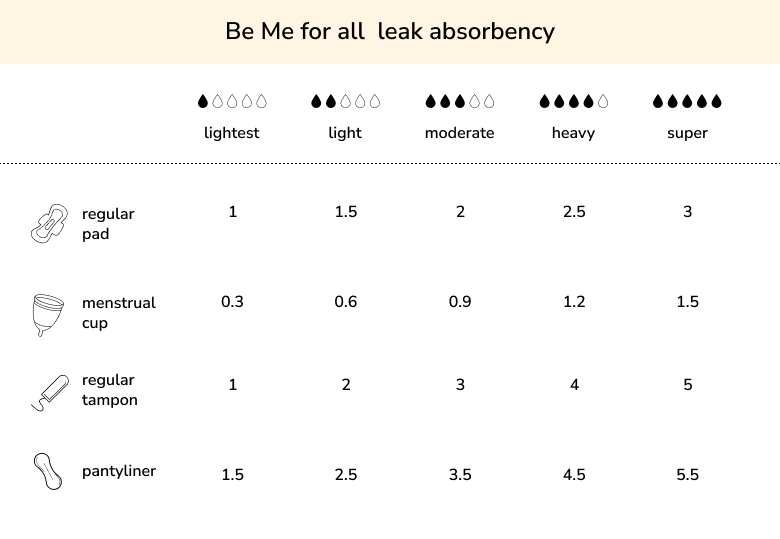
What’s normal during your menstrual cycle and what isn’t?
Imagine this: you're on your period, happily going about your day. Everything is just as it should be...OR IS IT?
The truth is, getting used to the idea of getting your period is normal. However, pinpointing what's normal about it and what isn't should also be taken into consideration every month.
Hence, Team Be Me is here to list perfectly acceptable symptoms and perfectly unacceptable symptoms during your menstrual cycle.
WHAT'S NORMAL:
1. Your period lasts for 3-8 days

What's important to remember regarding this point is that for the first few years after menstruation begins, long cycles are common.
But they tend to shorten and become more regular as you age.
PSA: A normal period is what's normal for YOU. If you notice a painless pattern about your period, then it can be stated with confidence that you are going with the flow (all pun intended!)
2. Your period arrives every 21-35 days

This is measured from the first day of one period to the first day of the next.
Thinking of ways to keep track of your menstrual cycle like a pro? We recommend either keeping a menstrual journal or marking its arrival on a calendar.
When you have noted down your start dates in a row for several months, you will be able to notice a pattern that you can rely on.
Feel free to be creative in your journal or on your calendar. You can always note down more details than just the start date.
Penning down the end date as well as the type of flow (light, medium, heavy) is also helpful.
WHAT'S NOT NORMAL:
1. Unusually long or short periods

If short periods are your thing, feel free to ignore this point. However, if your period begins to get shorter suddenly, we request you to consult your doctor after properly observing this phenomenon. The same goes for abruptly long monthly flows.
If you're wondering what could be causing these fluctuations, it could be a hormone imbalance, fibroids, or polyps.
2. Intense cramps

Intense cramps, also known as dysmenorrhea can be bothersome for many women but ignorable for others.
The causes for dysmenorrhea include but are not limited to a UID, endometriosis, sexually transmitted diseases, etc.
Team Be Me hopes that every curious woman or individual who stumbles upon this blog can learn something important from it and easily spot what's normal and what's abnormal about their menstrual cycle so that necessary action can be taken on time.










